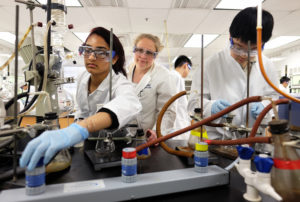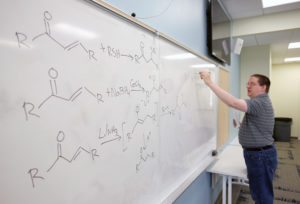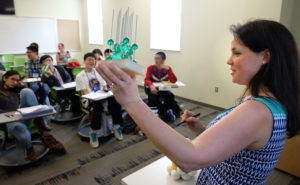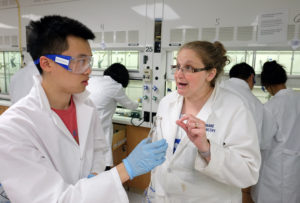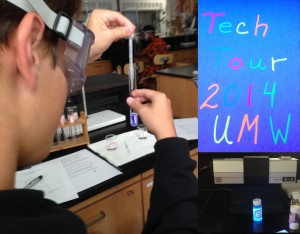Join us online for virtual programming from UMW Alumni and UMW’s chemistry faculty
UMW chemistry professors will present “Chemistry in the Kitchen” in three Lunchtime Learning sessions. These sessions will feature chemistry experiments that you can do yourself at home in your kitchen. Watch and enjoy, or conduct your own experiments along with us–we will send a supply list ahead of time so you can join in, if desired.
Each session will focus on a different topic:
Tuesday: Intermolecular Interactions with Dr. Leanna Giancarlo
Wednesday: Polymers with Dr. Kelli Slunt
Thursday: Sustainability with Dr. Janet Asper
Tuesday-Thursday, June 2-4
12:00-1:00 p.m. each day
Online
These experiments are designed for children in fourth-eighth grades, but likely will be entertaining for children outside that range as well.
Join us for one, two, or all three sessions–just pick which you want in the registration form. After you register, you will receive a confirmation email that includes a link to the Zoom sessions. You also will be sent a supply list in advance of the program.
We look forward to seeing you online!
